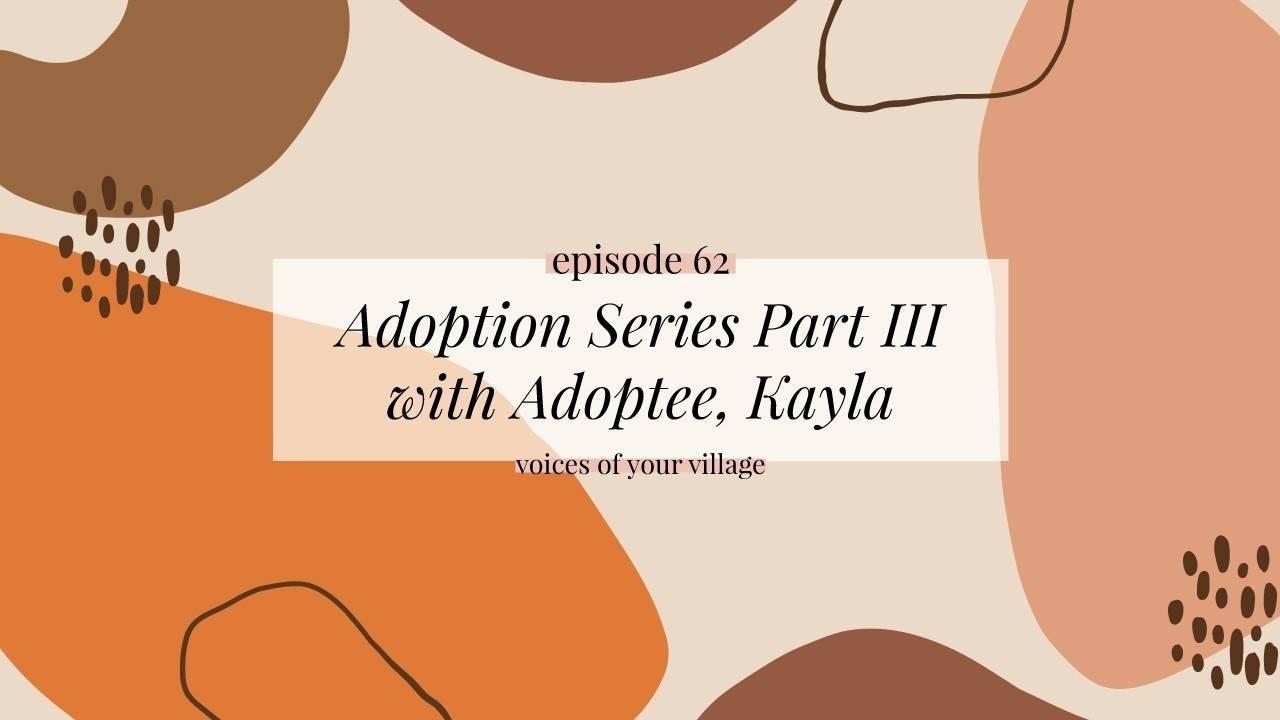Adoption - Part III, with adoptee Kayla

In this week’s episode, we dove into part III of our adoption series with adoptee, Kayla. Kayla shared that she was adopted at the age of 2.5. She has an older brother who is the biological child of her parents. She is black and was adopted by a white family. She grew up in a mostly white community.
Kayla shared that in many ways she felt as if she didn’t fit into her community. Throughout her adolescence, she felt very different from everyone around her. She felt like she didn’t fully fit in with black culture and didn’t fully fit into white culture. Her parents made an effort to bring aspects of black culture into her life, with books, dolls, and by taking Kayla to events that featured speakers and leaders that were people of color. Kayla also expressed the challenges she has faced trying to navigate black culture as a young adult in a more diverse college community. She has often felt caught between black culture and the white Jewish culture in which she was raised, never feeling fully a part of either.
We dove into the background of Kayla’s adoption and the circumstances that led to it. When Kayla was born, her first mom was incarcerated. She was released soon after Kayla’s birth but around the time that Kayla was two, she lost custody of her. Kayla was placed in foster care and all information about her first family was sealed off. Six months later she was adopted. At the time, because the records regarding her first family were sealed off, the adoption was closed. When Kayla was 14 years old, her first mom found her through social media, and Kayla, her parents, and her first mom set up a time to meet. The meeting was a little strange for Kayla because her first mom was so emotional and happy to see her, and Kayla was a bit reserved because she was just trying to take it all in.
We also discussed the 12 years during which Kayla had no contact with her first family. Kayla remembers having a lot of questions about why she was adopted, why her first family didn’t want her, and felt that something must have been wrong with her. Because all of the information about her first family was sealed off, there was no way for Kayla to contact them or learn any information about the circumstances of her adoption, which was challenging from an emotional standpoint.
Kayla shared the complicated dynamic that exists between her and her birth siblings. There is some animosity from her birth siblings regarding the privileges that Kayla’s upbringing has afforded her, and that prevents them from connecting in many ways.
We talked about the concept of white saviorism that exists in the adoption world when white parents are adopting children of color. Kayla did not ever feel that dynamic in her own adoption and that her parents did not ever act as if they felt they had saved Kayla. She does wish that her parents had helped her have more access to things like black hair care and black gospel music.
Kayla shared her experience with the long-term trauma of adoption. She’s noticed some of her friends who were adopted struggle with behavioral or emotional challenges. We talked about the importance of mental health support for adoptees because the impact of adoption is huge and there are so many emotions to process. Kayla feels that talking openly about the harder parts of adoption is important because it can help others who are navigating their own experiences or challenges.
